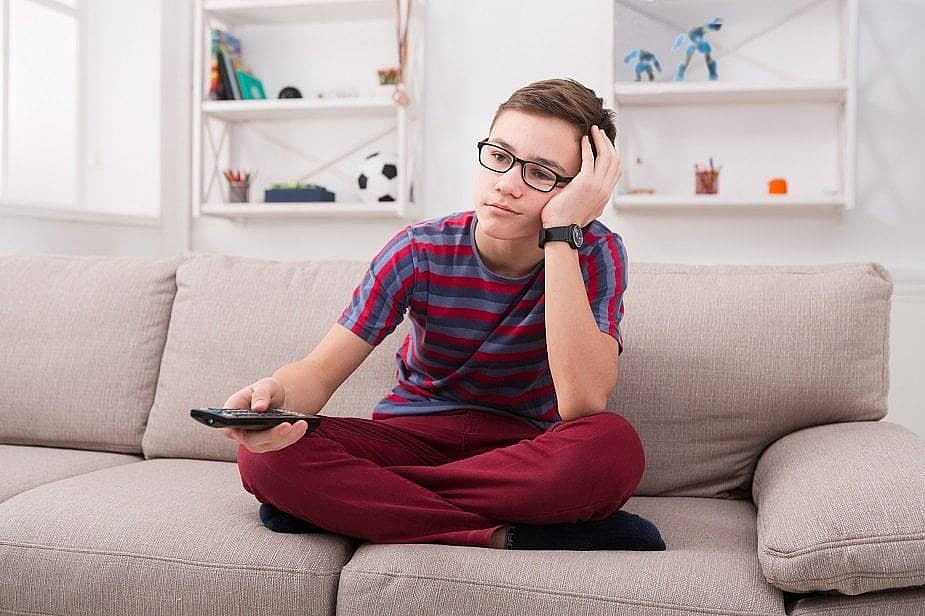As a therapist these days,I find myself doing therapy not in my cozy office on campus with my pooch by my side excited to greet my kids as they enter, but instead on the phone wherever I can find a quiet space from my active, home-bound 7- and 4-year-old boys. These conversations are proving to fall into some similar themes worth noting. Now that the initial “honeymoon period” of being home is for sure over and the initial welcomed freedoms and independence have been altered dramatically by stay-at-home restrictions, I’ve quickly noticed a gap between the willingness and capability of my clients to participate in and contribute to daily life. As my clients first arrived home in sudden fashion from boarding school, college, or a therapeutic program, their parents should have expected them to be perfectly capable of cleaning their rooms, emptying the dishwasher, taking out the garbage, and exercising. Their willingness to do so, on the other hand, not so much; parents’ experience of getting their kids to pitch in may be similar to asking them to ascend Everest without oxygen (not really, but you get the point). For most of my families, a full house under added restrictions has meant that hounds are the only winners in COVID-19 and we can only assume that their delight parallels the good fortune one experiences hitting “free parking” in Monopoly (which my 7 year old mysteriously tends to do on a regular basis).
But the experience for most is somewhere between the frustration of parents whose kids sit around and do nothing to help and the happy life of a dog getting endless belly rubs and walks. From what I am hearing from my clients, there are a number of COVID-19 positives, some serious cautionary tales, and a number of models possibly worth emulating that may add value to your “enhanced” family experience. Here are a couple worth sharing ( I have changed the names and locations of my clients to protect privacy.)
There’s Robbie from the northeast who lives not far from the ocean. Like all my clients, he’s had his share of trials and can be vulnerable when facing challenges. He has one sister, and both parents have home offices. So close quarters are the norm made closer by COVID-19. On our weekly therapy calls, he tells me about cooking with his mom (who makes a mean pasta sauce), surfing while beaches were still open (yes, surfing in March…I wonder what the temperature of the ocean is?) with his dad, and working on art work with his sister. They have dinners together, and tend to watch a movie, or episodes from a series on Netflix, on a nightly basis. Robbie is an artist and reports working on a couple of pieces at home he would have never had the time to get to if he were still at boarding school. When I check in with him about school work, he usually admits that he tends to get to it after he wakes up, around 10am, of course, which drives his mom nuts. But she sure likes having her sous-chef around.
Then there’s Julie who lives in Texas and arrived home with less enthusiasm than Robbie, since home is where she has always found sharing physical space with her parents challenging. She is used to and prefers spending time with friends, which she has historically done in order to be in the house as little as possible. Julie is an excellent student, who, before COVID-19 pushed her back home from boarding school, had been doing her best work and getting her best grades since, well, a long time ago when things started to get hard in her life and distract her from her studies. Since being home, Julie is putting a lot of emotional energy again into struggling with her parents, who have implemented a structured plan, organizing Julie’s time without her input. I’ve been really proud of Julie’s attempt to use her significantly improved communication skills to contribute her voice and her thoughts, which have now become more significant emotions, to her parents’ plan without her parents being able to listen. To make matters worse, Julie’s parents took her gaming devices because they were concerned she was playing too much. Julie’s world is restriction-sqaured thanks to COVID-19’s required distance learning. My heart goes out to her as she tries to manage her frustration in positive ways after so much success living independently at a boarding school and is now home with restrictions and structure that feel punishingly rigid and authoritarian. While she hasn’t moved her parents, she’s managing well, all things considered, and showing a lot of resiliency.
Rachel from California has been on my mind a lot lately. She’s not basking in her family time like Robbie and she’s not fighting the good fight to sustain all the gains she’s made in the face of these unique challenges only a pandemic can conjure up like Julie. As a therapist, I am worried about Rachel. As a person, I am worried about Rachel. She has been spending too many hours in her room, sleeping, doing homework (she says), and watching shows on her computer. She lives with her dad, step-mother, and three half-siblings (who are in this blended-family house every-other-week). It’s been difficult for me to communicate with her as effectively as I can when I am in a face-to-face therapeutic relationship. Sometimes she doesn’t answer when I call for our sessions. HIPPA restrictions keep me from seeing her during sessions on the video platforms she uses, so I can only read her mood and level of functioning by the tone of her voice and the erratic reports of her often unresponsive parents, who have thrown up their hands in the face of Rachel’s needs. COVID-19 is hard enough without adding four kids and one (at least) who’s really struggling to the point of major concern. Recently, I was able to ask Rachel about her family relationships and why she thought she was choosing to spend so much time cut off from everyone in her room. She admitted that she was unaware of whether her half-siblings were even in the house, stating ” I have not seen them yet.” Really, after two weeks of stay-at-home orders being in effect? When I gently probed about the opportunity to join the family for meals, she responded that she’s not been hungry. Like I said, I am worried about Rachel. The full power of therapists to take care of our most vulnerable is another one of COVID-19’s restrictions.
So what are my take-aways from my COVID-19 therapy clients? Nothing profound, I assure you. Many families seem to find the silver-lining in spending time together, especially in the evening. Whether it’s board games, show-watching, or cooking, people are enriched by time together. And that’s good. But it’s not good for everyone. Not every family is built that way; not every kid can handle that right now. No need to fret if your son or daughter is not attending dinner. Not eating is another thing. There’s nothing wrong with alone time. We all need it now and it’s definitely harder to find, so it’s okay to value it with more intensity! But all day and all night, successive days and nights, that’s obviously not good. We don’t have a good precedent for how to behave in, feel about or survive a pandemic. But we do still have common sense. When that doesn’t work, a good therapist is just a phone call away.


